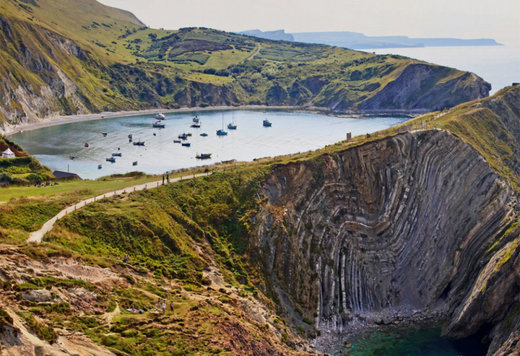"Russia," Belousov stated, "should follow the path of modernized conservatism... Russia can preserve traditional Western values. The West has abandoned these traditional values and moved on to something else - to an anti-traditional mindset within the framework of postmodernism."One suspects that this circumlocution refers to the woke ideology which is currently ravaging the Western world.
"It is important," he continued, "to preserve traditional Western values, which in a certain sense are the values of Western Christian civilization, European civilization."Now comes the punchline: "Russia can become the guardian of these values. This may sound like a paradox, but it's true. In this respect, it would be wrong to call the West our enemy ... In the West, there are certain elites, and considerable parts of society that are associated with traditional values. And in this respect, they may grasp at this straw, this chance which Russia offers them to preserve some of their values."
These are remarkable affirmations. It would not be an exaggeration to call them epochal, coming from such a high-ranking source in the country that until quite recently symbolised a radical ideological rupture with the very civilisation and moral values in the defence of which Mr. Belousov has raised his voice. And he is doing it not just in his own name but plainly on behalf of the entire land for which he so self-confidently speaks.
Granted, Mr. Belousov personally has all the required credentials to make such a statement because he is known to be a believing, church-going Orthodox Christian. In defending the European civilisation and European values he is standing up for his own deeply cherished principles and for the Orthodox Christian civilizational milieu from which those principles have sprung. But on the symbolic level, as everyone with a solid grasp of relevant history knows, there is much more to it than that.
Oddly, Western analysts and commentators missed completely the connection between Belousov's bold depiction of Russia as the residual guardian and defender of Western civilisation and strikingly similar sentiments articulated earlier by another Russian, at an analogous historical juncture. Following the demise of the Byzantine Roman Empire, Russian monk Philotheus famously declared his firm belief that "Moscow [has become] the Third Rome, and a Fourth there will not be." Western experts might have noticed the congruence between Philotheus and Belousov if they had a modicum of historical awareness, or, as Andrei Martyanov likes to put it, if their CVs contained even minimal evidence of culture and education. But in fact they are a culturally challenged and deplorably ignorant lot. Therefore, they overlooked the premium point that Defence Minister Belousov gratuitously handed to them. Were they brighter or better educated, and capable of earning their keep, they might have gleefully twisted the minister's words into rather plausible-sounding proof of Russia's expansionistic ambitions. Such disinformation, bolstered with a decontextualised quote from one of the highest officials, would have corroborated perfectly their propaganda claims.
They could have had a field day connecting Belousov's words to their mendacious misrepresentation of current events. And if their propaganda skills were not so pathetically unrefined they could even have made the case that their geopolitical rival's expansionistic pretensions did not start in February 2022 but go back for centuries, to at least the time of the monk Philotheus. Alas! to make such connections you need a bit of intellect, some imagination, and at least a bright schoolboy's knowledge of history.
But needless to say, the issues that Philotheus broached in the epistle to his emperor in the 16th century, and also the issue that Defence Minister Belousov has raised more recently, are neither symbolic nor metaphorical, and least of all are given to vulgar propagandistic simplification. They reflect today as they did in the time of Philotheus an emerging civilizational paradigm, a reality that has been profoundly and for the West perhaps irreversibly reshaped.
The new reality today is analogous to conditions in Christendom that prevailed when Philotheus made his bold declaration. Constantinople, the eastern Second Rome, had recently been conquered, just as in our time Europe, the First Rome, has finally imploded, ceasing to be either the political or spiritual centre of civilizational gravity. For recent evidence of that multi-level implosion one need look no further that the festival of satanic degeneracy in Malmo or the occult symbolism embedded in plain view in the official portrait of the head of the Church of England, the British monarch.
Today, as in the 16th century, who else is there that could possibly fill the void but the then surging, and in our own time resurgent, Russia?
That in my view encapsulates the significance of Andrey Belousov's history-making manifest that, regrettably, seems to have slipped under the radar but whose momentous impact will soon be felt.




Almost like it was planned since 9/11 Rockefeller Twin Towers were brought down. [Link]
ERIC DENÉCÉ : “WAR IN UKRAINE, NATO AND THE USA WANTED TO OVERTHROW PUTIN. MISSION FAILED” [Link]